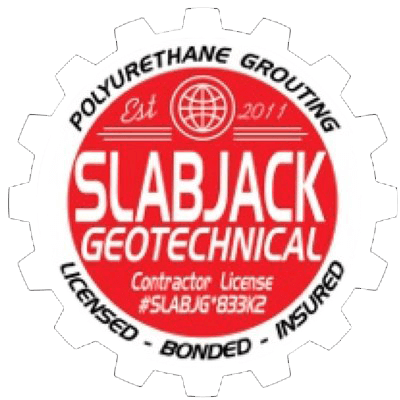Cracks in a concrete driveway can be an eyesore, not to mention a potential hazard for vehicles and pedestrians alike. Over time, weathering, temperature fluctuations, and the settling of the ground beneath the driveway can all contribute to the formation of cracks. Fortunately, repairing these cracks is a manageable task that can greatly extend the life of your driveway and restore its appearance. This comprehensive guide will walk you through how to repair cracks in a concrete driveway and effectively repair driveway concrete, ensuring a smooth and durable surface for years to come.
Understanding the Causes of Driveway Cracks
Before diving into the repair process, it’s essential to understand what causes driveway cracks in the first place. Common factors include:
- Temperature Changes: Concrete expands and contracts with temperature changes. Over time, this can cause cracks to form.
- Subsurface Issues: Poorly compacted subgrade or erosion can lead to uneven settling, causing cracks.
- Water Damage: Water seeping into the concrete can freeze, expand, and cause cracks. Poor drainage exacerbates this issue.
- Overloading: Heavy loads, such as large vehicles, can stress the concrete beyond its capacity, leading to cracks.
6 Effective Methods Used to Repair Driveway Concrete Cracks
When it comes to repairing cracks in your concrete driveway, several methods can be employed to ensure a robust and lasting repair. The choice of method largely depends on the size, severity, and underlying cause of the cracks. Below, we explore the most common and effective methods available for repairing cracks in driveway concrete, helping homeowners choose the best solution for their specific situation.
1. Epoxy or Polyurethane Injection
For cracks that are narrow but deep, the injection of epoxy or polyurethane resin can be an effective repair method. This approach is particularly useful for cracks that are too small for more traditional patching methods but still need to be sealed to prevent water infiltration and further damage. Epoxy injections provide a strong bond that not only seals the crack but also restores the concrete’s structural integrity. Polyurethane, while slightly less strong, offers more flexibility, which can be beneficial for cracks that are subject to movement.
2. Concrete Patching Compound
For small to moderate cracks, a concrete patching compound is often the best choice. These compounds are readily available at home improvement stores and can be applied using simple tools like a trowel or putty knife. The key to successful application is thorough preparation of the crack, including cleaning and, if necessary, widening the crack to create a “key” for the patching material. Patching compounds are designed to adhere well to old concrete and can be smoothed to blend with the surrounding surface.
3. Slabjacking
Slabjacking is a more advanced method used to lift and stabilize sinking concrete slabs. If cracks in your driveway are due to settling or uneven foundation, slabjacking can be an effective solution. This process involves drilling holes into the concrete slab and pumping a slurry of cement, sand, and other additives underneath. The pressure from the slurry lifts the slab back to its original position and fills the voids that caused the settling. Once the slurry hardens, it provides a stable foundation, reducing the likelihood of future cracks.
4. Resurfacing
When a driveway is extensively cracked or the surface is severely deteriorated, resurfacing may be the best option. Concrete resurfacing involves applying a new layer of concrete over the existing driveway, after thorough cleaning and repairing of the current cracks. This method not only addresses the cracks but also gives your driveway a new, fresh look. Resurfacing is less expensive and less labor-intensive than completely removing and replacing a driveway.
5. Caulking or Sealants
For very small, superficial cracks, caulking or using sealants can be an effective way to prevent water penetration and further damage. These materials are flexible, allowing for some movement due to temperature changes and settling without cracking. The application is straightforward and can be done by most homeowners. However, it’s important to choose a sealant that is specifically designed for concrete to ensure proper adhesion and longevity.
6. Complete Replacement
In cases where the driveway is extensively damaged, with large, deep cracks that signify structural failure, the best option may be complete replacement. This is often the last resort due to its high cost and labor requirements but may be necessary to ensure safety and prevent further property damage.
Choosing the Right Method
Selecting the appropriate method to repair cracks in your concrete driveway depends on a thorough assessment of the crack’s characteristics and, in some cases, the underlying cause of the damage. For minor, surface-level repairs, DIY methods like caulking, sealants, or patching compounds may suffice. However, for more significant issues, especially those related to structural integrity or foundation problems, consulting with professionals like Slabjack Geotechnical is advisable to ensure a durable and effective repair.
Maintenance Tips to Prevent Future Cracks
- Regular Cleaning: Keep your driveway clean and free from debris. Regularly sweeping and washing the surface can prevent the accumulation of materials that can cause damage over time.
- Apply a Sealer: Applying a concrete sealer every few years can significantly extend the life of your driveway by providing a protective layer against water, oil, and other substances that can cause damage.
- Avoid Chemical Deicers: In winter, avoid using chemical deicers on your driveway. These chemicals can penetrate the concrete and cause it to crack and deteriorate. Instead, use sand for traction or look for environmentally friendly deicing alternatives.
- Address Cracks Early: Finally, the key to maintaining a pristine driveway is to address any new cracks as soon as they appear. Early intervention can prevent small cracks from becoming large, costly problems.
When to Seek Professional Help for Driveway Concrete Repair
While many cracks in a concrete driveway can be effectively repaired with a DIY approach, there are situations when calling in a professional is the wiser choice. Understanding when to seek the expertise of a professional to repair your driveway concrete can save you time, and money, as well as prevent potential safety hazards. Here are some scenarios where professional assistance is recommended:
Extensive Damage
If your driveway has extensive damage, such as large areas of crumbling concrete or deep, wide cracks that cover a significant portion of the driveway, it may be time to call a professional. Such damage often indicates underlying issues that require more than just surface repairs, including problems with the foundation or subgrade material.
Recurring Cracks
If the same areas of your driveway continue to crack even after repairs, this could be a sign of a deeper, structural issue. Professionals can assess the underlying causes of recurring cracks, which might include poor drainage, an inadequate base, or tree roots pushing up through the concrete. They have the tools and expertise to address these issues effectively.
Drainage Problems
Improper drainage can lead to water pooling on your driveway, which can weaken the concrete over time and lead to cracks. If you notice water consistently pooling in certain areas of your driveway or if cracks seem to form in the same places repeatedly due to water damage, a professional can help redesign the drainage system to protect your driveway in the long term.
Large or Deep Cracks
Cracks that are wider than a quarter-inch or that penetrate deep into the concrete may require a professional’s touch. These types of cracks can be indicative of significant movement or settling of the driveway’s foundation. Professionals have access to more advanced tools and materials that can more effectively bond to the existing concrete and ensure a durable repair.
Safety Concerns
Working with concrete involves handling heavy materials and, in some cases, dangerous tools. If you’re not confident in your ability to safely perform the repairs, or if you have health concerns that make physical labor difficult, it’s best to leave the work to professionals. They have the equipment and expertise to do the job safely and efficiently.
Discover Professional Concrete Repair Services with Slabjack Geotechnical
For residents living in Washington and Northern Idaho who are searching for reliable and professional assistance on how to repair cracks in a concrete driveway, look no further than Slabjack Geotechnical. Our team specializes in providing top-tier professional concrete repair services, including expert concrete crack repair, to ensure your driveway not only looks its best but also stands the test of time against the elements.
Don’t let driveway cracks diminish the curb appeal and value of your home. Reach out to Slabjack Geotechnical today, and let us show you why we’re the trusted choice for concrete repair services in your area. Together, we can restore the beauty and functionality of your concrete surfaces, ensuring they remain in top condition for years to come.
FAQs
How long does it take for repaired concrete cracks to fully cure?
Concrete crack repairs typically take about 24 to 48 hours to dry enough to walk or drive on, but full curing can take up to a month. It’s important to keep the repaired area dry and protected from extreme temperatures during the first few days.
Will repaired concrete cracks be visible after repair?
While effective repair techniques can significantly reduce the visibility of cracks, some repairs might still be noticeable, especially if the color and texture of the patching material do not perfectly match the original concrete. Professional services can often achieve a closer match and more aesthetically pleasing result.
Can all types of concrete cracks be repaired?
Most types of concrete cracks can be repaired, including hairline cracks, wider cracks, and even some structural cracks. However, the method and success of the repair depend on the crack’s size, depth, and cause.















